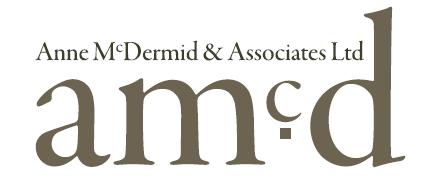PART 3 IN A SERIES on the business of writing
In the first post of this series – The Business of Writing – we stated that
good writing isn’t enough, that writers must act like entrepreneurs who are business, market and technology savvy. Typically entrepreneurs are willing to take risks, seek independence and are both decisive and adaptable. They are driven by an idea – a service or product that will capture the market – and are disciplined self-starters who juggle multiple tasks. A daunting list of attributes.
Throughout the series we will delve into these concepts and describe how they apply to writers. In this post we outline nine questions a writer-entrepreneur should consider.
1. Do you think of yourself as an owner-operator? An owner-operator is a small business owned by the same person who is running day-to-day operations. In addition to the day-to-day business of writing, as an entrepreneur-writer you should be planning the business, managing its financial aspects, and determining your marketing strategy.
2. Do you think of your work as a collection of products and services? Entrepreneurs may begin with one product but most evolve to sell a complementary set of products and services in order to more fully satisfy their customers. The cost of acquiring customers is high; it is much easier to sell additional products (books are a product as are freelance writing, short stories, speaking engagements and blog posts) to existing customers than acquire another set of customers. Have you thought of your writing this way?
3. Do you understand your product development cycle? Every entrepreneur seeks to offer excellent products and services in a cost-effective manner. As market conditions change they adapt with new products, improved services and innovative marketing and promotion. How long do you take to write a new book? New freelance article or blog post? What is your process and why? Do you know your product development cost?
4. Do you know your readers (customers) and the value you offer them? Before launching a business or a new product, entrepreneurs determine the size of the market, test market their products and find creative ways to interact with customers. Entrepreneurs remain alert to changing market conditions and adapt by creating new products and services. Who are your readers? Why do they purchase your works? How will you reach them?
5. Do you know your competitors? Entrepreneurs know their competitors and how they operate. They know when changes have occurred in their slice of the industry. Both fiction and non-fiction writers should be equally savvy.
6. Do you understand your selling role? Entrepreneurs are passionate about selling their products and if they aren’t born salesmen they hire one. Publishers have limited advertising and promotion budgets. As the owner-operator of your writing business, building an audience and selling to them is one of your critical responsibilities. Are you comfortable selling?
7. Do you know how your business will make money? At a very simplistic level, revenue minus cost equals profit. Successful entrepreneurs develop good financial controls, know the cost of doing business, seek ways to be more efficient. They also look for ways to enhance revenue generation; for example, some authors enhance revenue through freelance articles, workshops or speaking engagements.
8. Do you have the traits that foster success? In addition to the traits listed in the first paragraph, we would add the ability to anticipate and handle change, the willingness to hustle for clients (see point 6), and good organization and planning skills.
9. Do you have the financial resources to start your business? Entrepreneurs put personal funds into their business and also seek investment dollars. They must satisfy themselves, their families and their investors that the risk-reward equation is worthwhile. Writers put personal time into their business, time that often reduces their income from other sources. Writers too have to ensure that the rewards outweigh the risks.
Our series is intended to help writers think like small business owners in the context of a changing industry. The questions posed above may sound intimidating, but we believe they are vital to understanding the environment facing today’s writers and helping you plan your way forward.
Here is how we see the first part of the series fitting together.
Good Writing Isn’t Enough: read this to set the stage for the series
Old World – New World: understand the changing world of writing and publishing
Nine Questions to Test Your Entrepreneurship: consider the implications of each question for your career as an entrepreneur-writer
No Writer is an Island: explore the external factors affecting writers and consider how you will adapt (planned for the week of August 9)
Smart Investors Require a Business Plan: have a look at the contents of a business plan, start thinking about what you will put in your business plan (planned for the week of August 16)
It’s Not Just Ebooks, It’s Technology: technology used well can enable your writing business, your job is to choose the mix that works for you (planned for the week of August 23)
We look forward to your questions, comments and challenges.







